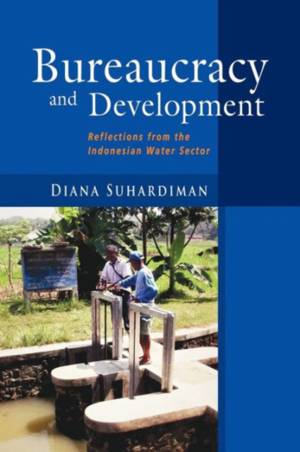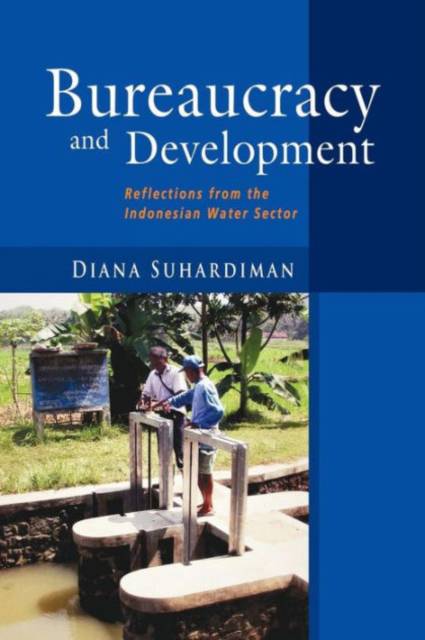
- Afhalen na 1 uur in een winkel met voorraad
- Gratis thuislevering in België vanaf € 30
- Ruim aanbod met 7 miljoen producten
- Afhalen na 1 uur in een winkel met voorraad
- Gratis thuislevering in België vanaf € 30
- Ruim aanbod met 7 miljoen producten
Zoeken
Bureaucracy and Development
Reflections from the Indonesian Water Sector
Diana Suhardiman
Paperback | Engels
€ 39,95
+ 79 punten
Omschrijving
The fall of the New Order government in 1998 and the political reform that followed posed substantial challenges for Indonesia's bureaucracy to continue fulfilling its mandate. This book analyses the process of bureaucratic reform in the irrigation sector. Using Irrigation Management Transfer policy as the entry point for analysis, it documents and analyses the irrigation bureaucracy's ability to sustain its power and prominence in the sector's development, amidst and against national and international pressures for reform. The book argues that bureaucratic reform in the irrigation sector, rather than attempting to change the bureaucracy's functioning in the image of national and global (good) governance perspectives and priorities, should instead focus on linking the irrigation bureaucracy's everyday practice more effectively with farmers' needs and aspirations. Reform efforts of the past decades show that Indonesia's irrigation sector development cannot be redirected without the irrigation bureaucracy's knowledge, experience and cooperation, and without strengthening its downward accountability to farmer-irrigators.
Specificaties
Betrokkenen
- Auteur(s):
- Uitgeverij:
Inhoud
- Aantal bladzijden:
- 294
- Taal:
- Engels
Eigenschappen
- Productcode (EAN):
- 9789814459709
- Verschijningsdatum:
- 26/12/2014
- Uitvoering:
- Paperback
- Formaat:
- Trade paperback (VS)
- Afmetingen:
- 152 mm x 229 mm
- Gewicht:
- 394 g

Alleen bij Standaard Boekhandel
+ 79 punten op je klantenkaart van Standaard Boekhandel
Beoordelingen
We publiceren alleen reviews die voldoen aan de voorwaarden voor reviews. Bekijk onze voorwaarden voor reviews.











